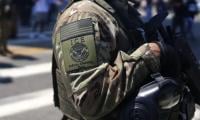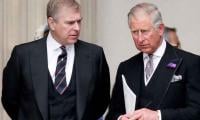Unity via Karbala
The commemoration of the ‘chehlum’ [40th day after the passing] of Imam Hussain (a.s.) on Thursday (October 8), presents Pakistan with timely lessons amidst reports of an increasing sectarian divide.
In recent years after the departure of former Iraqi dictator Saddam Hussain, the commemoration of the chehlum in Iraq has drawn anywhere between 30 million and 50 million pilgrims. They have included a large community of those traveling on foot from the city of Najaf, the final resting place of Hazrat Ali (a.s.), to Karbala where Imam Hussain rests along with at least 72 of his followers’. Together, the events surrounding this commemoration offer a powerful message to Muslims worldwide, urging them to unify and defy injustice.
The roughly 100 kms route has been marked with up to 1400 poles, together signifying the number of years since that epic battle placed Imam Hussain (a.s.) and his followers on one side and anywhere between 30 thousand and 70 thousand soldiers of Yazid opposing them.
The martyrdoms of Karbala and the subsequent captivity of the women and children left behind in inhuman conditions logically should have been long forgotten. And, yet, the enduring legacy of this tragic event remembered year after year must account for its purely miraculous character.
Travelers to Karbala in recent years have witnessed a spectacular turnout. The travelers have also included non-Muslims, present in Karbala to pay homage to the enduring legacy of the martyrs. The show of solidarity in Karbala has become a powerful yearly event to inspire Muslims across the world.
Ahead of Thursday’s commemoration in Karbala, reports of hardline activists across Pakistan protesting against members of one Islamic sect have badly revived an uncomfortable truth.
Since the 1980s, such activists who appear to be numerically insignificant but indeed very vocal, have repeatedly come forward to target believers of the Shia sect.
Meanwhile, prominent Shia Muslims who have been targeted in assassinations have ranged from doctors to businessmen, engineers and members of the cultural community. The killings have widened an already dangerous divide across Pakistan.
Following the latest protests, ruling politicians and senior security officials have classified them as primarily the work of foreign intruders seeking to destabilize Pakistan. Yet, irrespective of what has driven the ugly protests, the onus of responsibility to curb such blatant divisions lies upon members of Pakistan’s ruling structure.
Left unattended, the consequences of this divide are impossible to imagine. Pakistan’s already troubled effort to secure the country internally and revive a largely weak economy is doomed to fail with such attempts at divisions in the name of Islam left unattended.
With the stakes so high, it is essential for Prime Minister Imran Khan to step ahead and begin bridging the divide with two essential steps.
On the one hand, it is essential to reach out to leaders of a broad-based set of stakeholders, to press ahead with a renewed message of Islamic unity. Such an assembly must go beyond just Islamic scholars representing different Muslim sects. Representing society at large, such an assembly ought to include politicians and civil society leaders of different shades, members of different professional cadres, past and present members of the civil services and former members of the armed forces. Together, such a new coalition must become the launching pad for confronting a new threat which at best seeks to widen the present divide. At worst, the recent protests could lead Pakistan to further bloodletting at a time when the country can hardly afford more instability.
On the other hand, Prime Minister Imran Khan cannot afford to oversee the continuation of what appears to be his rudderless administration, notably across the province of Punjab which is Pakistan’s proverbial heartland. A failure to respond to large or small crises across the province which is home to about 60 percent of Pakistan’s population has exposed Punjab to a wider conflict flowing from attempts to widen the sectarian divide.
Ultimately, Pakistan’s future security must be protected through bridging the divide. And there couldn’t be a more appropriate time to renew Pakistan’s commitment to this cause than the remembrance of the sacrifice by Imam Hussain (a.s.) and his followers.
The writer is an Islamabad-based journalist who writes on political and economic affairs.
Email: farhanbokhari@gmail.com
-
 King Charles Prepares Next Move As Andrew Shows No Remorse
King Charles Prepares Next Move As Andrew Shows No Remorse -
 Epstein's Brother Invited To Discuss Royal Family's Future After Andrew's Arrest, On Popular Show
Epstein's Brother Invited To Discuss Royal Family's Future After Andrew's Arrest, On Popular Show -
 BAFTA Winner Robert Aramayo Defends Director's Racial Slurs Amid Tics
BAFTA Winner Robert Aramayo Defends Director's Racial Slurs Amid Tics -
 Prince William, Kate Middleton’s Troubles Take On A New Face: ‘They’re Steeling Themselves’
Prince William, Kate Middleton’s Troubles Take On A New Face: ‘They’re Steeling Themselves’ -
 'Coronation Street' Star Sally Ann Matthews Finally Reveals Why She Quit ITV Soap
'Coronation Street' Star Sally Ann Matthews Finally Reveals Why She Quit ITV Soap -
 Prince Andrew's Major Sacrifice For Princess Beatrice, Eugenie Royal Titles Revealed
Prince Andrew's Major Sacrifice For Princess Beatrice, Eugenie Royal Titles Revealed -
 ICE Agent Misfired Bullet Into Minnesota Hotel’s Guest Room
ICE Agent Misfired Bullet Into Minnesota Hotel’s Guest Room -
 Andrew Mountbatten-Windsor, Fergie Still Counting On Each Other? Deets
Andrew Mountbatten-Windsor, Fergie Still Counting On Each Other? Deets -
 Piers Morgan Reacts To Photo With Ghislaine Maxwell
Piers Morgan Reacts To Photo With Ghislaine Maxwell -
 UK Data Privacy Regulators Raises Safety Concerns, Warn Against AI-generated Images
UK Data Privacy Regulators Raises Safety Concerns, Warn Against AI-generated Images -
 Australian PM Agrees With King Charles, Backs Removing Andrew From Line Of Succession
Australian PM Agrees With King Charles, Backs Removing Andrew From Line Of Succession -
 Kate Middleton, Prince William 'steeling Themselves' For Harry's Inevitable Arrival With Lilibet, Archie
Kate Middleton, Prince William 'steeling Themselves' For Harry's Inevitable Arrival With Lilibet, Archie -
 Kiefer Sutherland's Arrest Sparks Fresh Fears As Friends 'beg Him' To Get Help After Father's Death
Kiefer Sutherland's Arrest Sparks Fresh Fears As Friends 'beg Him' To Get Help After Father's Death -
 John Davidson 2026 BAFTA Backlash: Tourettes Action Charity Defends Him Over 'unintentional' Racial Slur
John Davidson 2026 BAFTA Backlash: Tourettes Action Charity Defends Him Over 'unintentional' Racial Slur -
 Kim Kardashian Obsessed TV Star 'Lip King' Breathes His Last At 32
Kim Kardashian Obsessed TV Star 'Lip King' Breathes His Last At 32 -
 Prince Harry Backtracks On Privacy Fears For Princess Lilibet: Here’s Why Public Saw Her Face Amid Andrew Drama
Prince Harry Backtracks On Privacy Fears For Princess Lilibet: Here’s Why Public Saw Her Face Amid Andrew Drama



